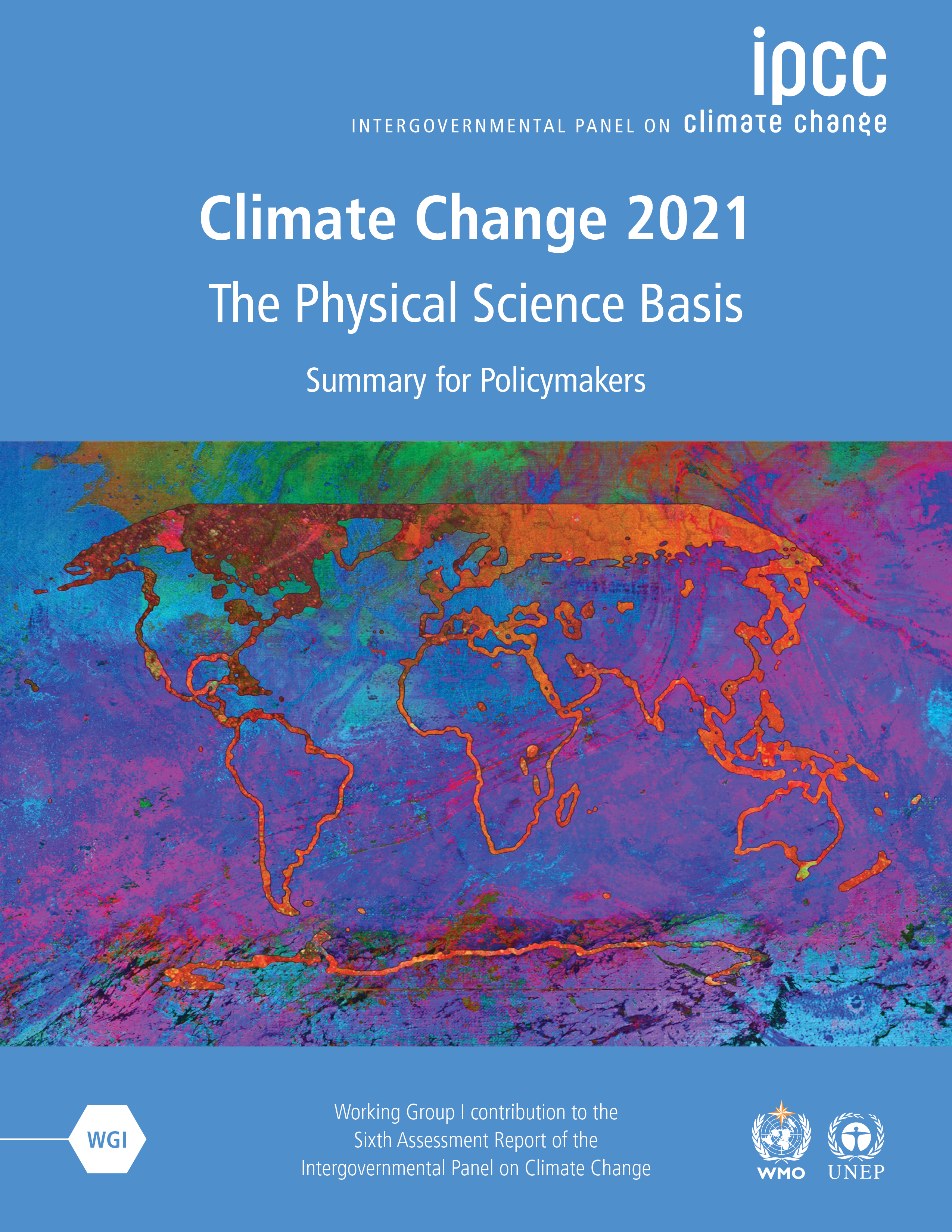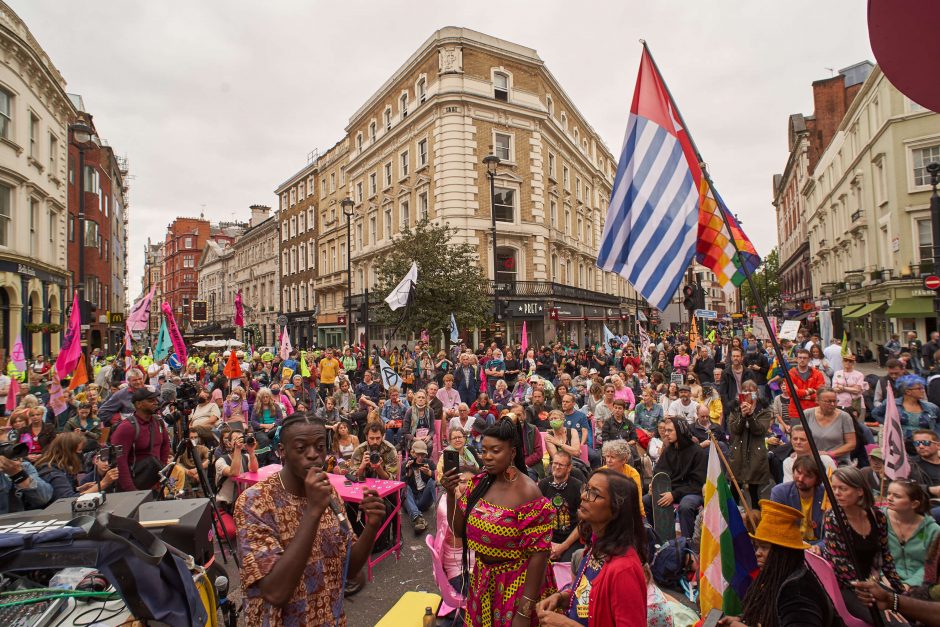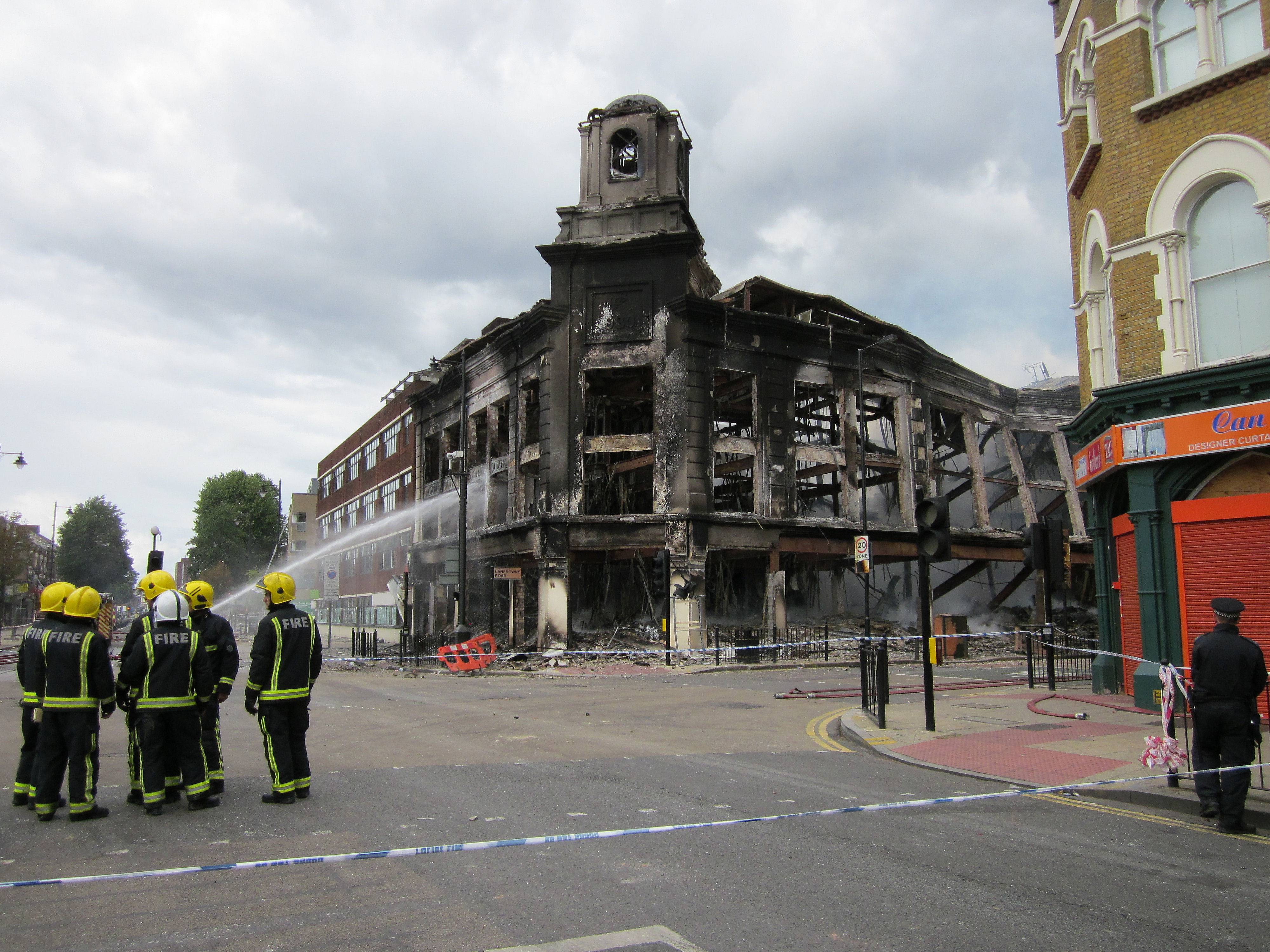The IPCC report and beyond: Talking Points on the state of our planet
Posted on 02 Sep 2021 Categories: Blog, Climate crisis, Inequality, Local initiatives, Social Security, Talking Points, Young people
by Rethinking Poverty
August is often dubbed the silly season, but this one has been packed with momentous events: the publication of the latest IPCC report, the chaotic exit from Afghanistan, and Hurricane Ida hitting New Orleans 16 years to the day after Hurricane Katrina hit the city. This month’s Talking Points considers the state of the planet – as reflected in the IPCC report – and the state of the nation as we head into autumn and what we all hoped would be the aftermath of the coronavirus pandemic.
THE STATE OF THE PLANET
The IPCC report

The latest IPCC (Intergovernmental Panel on Climate Change) report, published on 9 August, sounded what UN Secretary General Antonio Guterres called a ‘Code Red for Humanity’. The report paints a grim picture of what’s happening now, with human activity causing ‘unprecedented’ changes in the climate and all regions experiencing extreme weather – a situation that will dramatically worsen in the next couple of decades if we don’t act now.
On the positive side, the IPCC report says it’s not too late to do something about it. We can’t turn back the clock – not now at least. Extreme weather events are here to stay, and they will get worse. But we can prevent catastrophic global warming if we reduce greenhouse gases drastically this decade. ‘“Unless there are immediate rapid and large-scale reductions in greenhouse gas emissions, limiting warming to 1.5C will be beyond reach,” says Abdalah Mokssit, secretary of the IPCC …. The scientists have now spoken, louder and clearer than ever before. Now it is for the politicians to act.’
Three-quarters of people in the G20 believe humanity is pushing the planet towards a dangerous tipping point and support a shift of priorities away from economic profit, according to the Ipsos Mori survey for the Global Commons Alliance (GCA), while 80 per cent said they were willing to step up and do more to regenerate the global commons. According to Owen Gaffney of the GCA, ‘“The world is not sleepwalking towards catastrophe. People know we are taking colossal risks, they want to do more and they want their governments to do more.”’
What are governments doing?
In many local authorities in the UK, local ambition is significantly outstripping that of the national government. New research by UK100, the cross-party network for locally elected leaders in the UK who have pledged to switch to 100 per cent clean energy by 2050, has found that ‘with the right kind of public investment, more than 2,700,000 good green jobs would be created in the move to a low carbon economy’. But the UK government is ‘failing to help local leaders achieve net zero’. ‘The quickest way for government to achieve net zero targets, argued Jamie Driscoll, the mayor for North of Tyne, would be by devolving funds and powers to mayoral combined authorities’ – a view widely echoed, by London mayor Sadiq Khan among others.
In the US, Ithaca, the upstate New York city of 30,000, is showing the way. Working with private equity investors, Ithaca has raised $100 million to climate-proof its buildings, which make up nearly 40% of US carbon emissions. ‘Money for retrofitting will be offered to building owners as low- or no-interest loans paid back by utility bill savings, and could even come with cash incentives. Because the loans will be backed by the city, low-income families can participate, even though their credit history might disqualify them for private loans.’
Fairness will be key to successfully tackling the climate crisis. ‘Building back greener means building back fairer,’ says Guardian economics editor Larry Elliott. We must ‘ensure buy-in from the low-paid people and those likely to lose their jobs in the inevitable low-carbon shakeout. If governments want people to switch from gas boilers to heat pumps they are going to have to foot the bill.’
Stop all new fossil fuel investment immediately
This is the ‘immediate demand’ that Extinction Rebellion (XR) is making in its ‘Impossible Rebellion’, now coming to the end of its second week. ‘No more petrol, no more diesel, funding fossil fuels is evil,’ chanted protesters outside the Science Museum on Sunday, demanding the museum stops Shell sponsorship of its flagship climate exhibition. Many of the protests and occupations have been in the City – outside the Bank of England and other banks and institutions that fund fossil fuels. Businesses listed on the London Stock Exchange or financed from the UK account for about 15 per cent of global carbon emissions, according to XR.
Why the ‘impossible’ rebellion? Because what XR is asking seems (almost) impossible. But XR’s demand that the government ban all new investment in fossil fuels immediately is not a radical ask, protesters told the Independent. ‘“In fact the International Energy Agency have said this has to happen by the end of the year if the world is to meet its climate commitments.”’

THE STATE OF THE NATION
A grim picture
Commentators present a grim picture – and not confined to the most disadvantaged sections of the population. On 3 August ‘liberal conservative’ think-tank Bright Blue published analysis entitled Under stress? The experiences of benefit claimants during the pandemic. Shockingly, 12 per cent of benefits claimants reported that they had experienced domestic abuse since March 2020 compared to 1 per cent of the rest of the public. On the financial side, twice as many benefit claimants (52 per cent) reported having to dip into their savings to cover daily expenses over the first year of the pandemic, while more than 1 in 4 claimants had to borrow money to cover daily expenses, compared to only 7 per cent of the rest of the public.
As so often, children have been particularly badly affected. Foster places are in short supply and council budgets buckling as social service referrals increase by up to 40 per cent in some areas – what the Guardian terms ‘England’s pandemic crisis of child abuse, neglect and poverty’. The Children’s Society reports ‘a rising number of UK children unhappy with their lives’. But it’s not just children. More generally, Carnegie UK finds ‘wellbeing in decline in England as loneliness rises’.
Ten years after the riots sparked by the shooting of 29-year-old Mark Duggan in Tottenham, north London, on 4 August 2011, after police believed he was carrying a gun, little seems to have changed. ‘“I personally don’t think anything very much was addressed by the government or by the authorities,” says Tim Newburn, who has spent the past decade analysing the riots. “Ten years on,” he concluded, “we find ourselves in essence, no better off”.’

What can government do?
Cut universal credit in October for starters? Even the least usual suspects are urging the government to keep the £20 universal credit lifeline this October. Johnson faces rebellion over ‘intolerable’ hunger and poverty in home counties, reports the Guardian. Steve Baker, MP for Wycombe in Buckinghamshire and a high-profile Conservative, urged ministers to abandon plans to cut universal credit and not to ignore the cost of living crisis faced by people ‘in real trouble’ in constituencies like his who had been ‘tipped over the edge’ financially by the pandemic. Conservative MPs Peter Aldous and John Stevenson have written to Boris Johnson, urging him not to press on with plans to cut universal credit payments from October.
Among the more usual suspects, the National Housing Federation has revealed how cuts and freezes to levels of social security have left families unable to meet their everyday needs. ‘Instead of being given a lifeline out of poverty, they’ve been put at risk of being pulled deeper into it.’ They too urge the government to keep the £20 universal credit lifeline this October. The charity Citizens Advice has warned that a third of people on universal credit, or at least 2.3 million people, will end up in debt when the extra payment is removed in October. Finally, the Joseph Rowntree Foundation has voiced fears about the ‘biggest overnight cut in benefits since Second World War’. According to JRF, most constituencies in England, Wales and Scotland will see more than one in three families affected as a result of the £1,040-a-year cut.
Is ‘levelling up’ the answer?
The Centre for Cities says closing the north-south divide would take decades and cost hundreds of billions – ‘a similar scale of funding to the near-£2tn reunification of Germany after the fall of the Berlin Wall’. England’s biggest cities, including Birmingham, Manchester and Leeds, have the lowest productivity and life expectancy in western Europe. The schemes outlined so far by the government are a ‘drop in the ocean’.
A wellbeing approach?
Carnegie UK’s newly published strategy, entitled ‘Learning how to live well together: our strategy for change’, signals a refocus on improving wellbeing, ‘putting it at the heart of all of our work’. ‘Achieving collective wellbeing requires social, economic, environmental, and democratic wellbeing outcomes to be seen as equally important and given equal weight. We will be advocates for public policy approaches that embrace and reflect this balance.’
Learning from young Olympic athletes
June/July’s Talking Points highlighted what we could learn from the England football team. This month’s looks at the example of young athletes more broadly. ‘We have watched elite athletes behave with the sort of dignity and respect that world leaders would do well to emulate,’ writes Sirin Kale in the Guardian. ‘They have competed under intense global scrutiny at the highest levels and never lost sight of the fact that how you behave matters more than the goals you score or the aces you serve.’ She goes on to set out ‘20 things we learned about youth politics and culture from an astonishing summer of sport’.
As our Olympians bring us together, so our politicians tear us apart, writes Martin Kettle. Team GB’s athletes embody a ‘pluralist national vision’, he says. ‘The Olympics allow today’s Britain to present itself to the world as a diverse and outward-looking society … Team GB has come closer than most to creating, albeit briefly, a modern country at ease with itself.’ Nine years on from the London Olympics, he goes on, ‘the disjunction between the country we wanted to be in 2012, and almost became, and the country we are now in fact becoming is glaring. In the Olympics we may think we glimpse the best of ourselves, and perhaps a hope for the future. In politics we currently see the worst, amid a deepening fear about what is to come.’

Want to keep up-to-date with more articles like this? Sign up to our newsletter.
Posted on 02 Sep 2021 Categories: Blog, Climate crisis, Inequality, Local initiatives, Social Security, Talking Points, Young people
